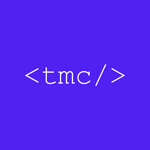
TeachMeCode InstituteTypically replies within 10 minutes
TeachMeCode Institute
Hello there! 🤝 Welcome to TeachMeCode Institute. How can we help you?
09:33
Turn your creativity into a lucrative mobile development career. Master Flutter to create engaging, user-friendly apps for both iOS and Android, and gain insights into Dart and other essential tools.
Skilled mobile developers earn competitive salaries—from approximately 220,000 to over 370,000 AED annually.
Merge your passion with substantial earning potential by mastering these in-demand skills.
Complete this course and gain the ability to develop high-quality mobile applications across multiple platforms.
| Week | Month 1 | Month 2 |
| Week 1 |
 Introduction to Java
Introduction to Java
 Control structures and functions
Control structures and functions
|
 Introduction to Android Studio
Introduction to Android Studio
 User Interface Design
User Interface Design
|
| Week 2 |
 Arrays and collections
Arrays and collections
 Object-oriented programming (OOP)
Object-oriented programming (OOP)
|
 Activities and Intents
Activities and Intents
 UI Components and Event Handling
UI Components and Event Handling
|
| Week 3 |
 Exception handling and basic input/output
Exception handling and basic input/output
 Graphical User Interfaces (GUIs) in Java
Graphical User Interfaces (GUIs) in Java
|
 Simple Storage
Simple Storage
 Introduction to Networking
Introduction to Networking
|
| Week 4 |
 Concepts review - Part 1
Concepts review - Part 1
 Concepts review - Part 2
Concepts review - Part 2
|
 Development of Basic Features
Development of Basic Features
 Feedback and Next Steps
Feedback and Next Steps
|
| Week | Month 1 |
| Week 1 |
 Introduction to Java
Introduction to Java
 Control structures and functions
Control structures and functions
|
| Week 2 |
 Arrays and collections
Arrays and collections
 Object-oriented programming (OOP)
Object-oriented programming (OOP)
|
| Week 3 |
 Exception handling and basic input/output
Exception handling and basic input/output
 Graphical User Interfaces (GUIs) in Java
Graphical User Interfaces (GUIs) in Java
|
| Week 4 |
 Concepts review - Part 1
Concepts review - Part 1
 Concepts review - Part 2
Concepts review - Part 2
|
| Week | Month 2 |
| Week 1 |
 Introduction to Android Studio
Introduction to Android Studio
 User Interface Design
User Interface Design
|
| Week 2 |
 Activities and Intents
Activities and Intents
 UI Components and Event Handling
UI Components and Event Handling
|
| Week 3 |
 Simple Storage
Simple Storage
 Introduction to Networking
Introduction to Networking
|
| Week 4 |
 Development of Basic Features
Development of Basic Features
 Feedback and Next Steps
Feedback and Next Steps
|
Get Instant Access to Full Course Details
Enter your email to discover the curriculum.
Robert Denis
Training in Mobile Development Master
Hey, I’m Robert, your instructor at TeachMeCode Institute. With over 10 years of experience in mobile apps, websites, and software, I’m all about sharing my know-how to help you level up. To me, programming isn’t just technical stuff; it’s an art. It’s like having a blank canvas where you can let your imagination go wild, turning ideas into reality with just a few lines of code.
The mobile development industry is not only creatively fulfilling but also offers lucrative financial opportunities. Skilled mobile developers often earn competitive salaries, with averages ranging from 220,000 AED to over 370,000 AED per year, depending on experience and location. By mastering these in-demand skills, you’re positioning yourself for a career that combines creativity with substantial earning potential.
Programming is like being a kid with crayons again, but with endless possibilities and creativity. I love inspiring others to explore their imagination and transform ideas into reality through code. Join me, and let’s embark on this creative journey into mobile development together!

Master Java and OOP

Develop Android Applications

Integrate Firebase Services

Test and Review Features
Job Description: 🧠 Role Summary We are seeking a highly skilled Consultant Ped...
Job Description: We are looking for a Senior Android Developer with deep ARCore expertise to dri...
Job Description: The Role Ziina is looking for a Senior Android Engineer to join our tea...
Job Description: 📍 Location: Dubai (on-site) This position offers you the opportunity to join best...
Job Description: Location: Dubai (On-site preferred) Type: Full-Time






Read More Alumni
Testimonials On Google
Explore more reviews on Google to see how we’re making a difference in our students learning journey.
Reviews of TeachMeCode Institute
No, you do not need any prior experience, as the course is designed for beginners.
In the in-person format, all you need is your eagerness to learn, as the institute supplies all the necessary resources, including an iMac for each student.
You will learn to program in Java from scratch, understanding the basics of programming and how to create applications using Android Studio.
Upon completion, you will be able to create your own applications and apply for jobs as a mobile application developer.
Yes, you will acquire the key skills that will allow you to apply for jobs in mobile application development.
No, there are no additional costs. Android Studio is free, and the institute provides the necessary tools.